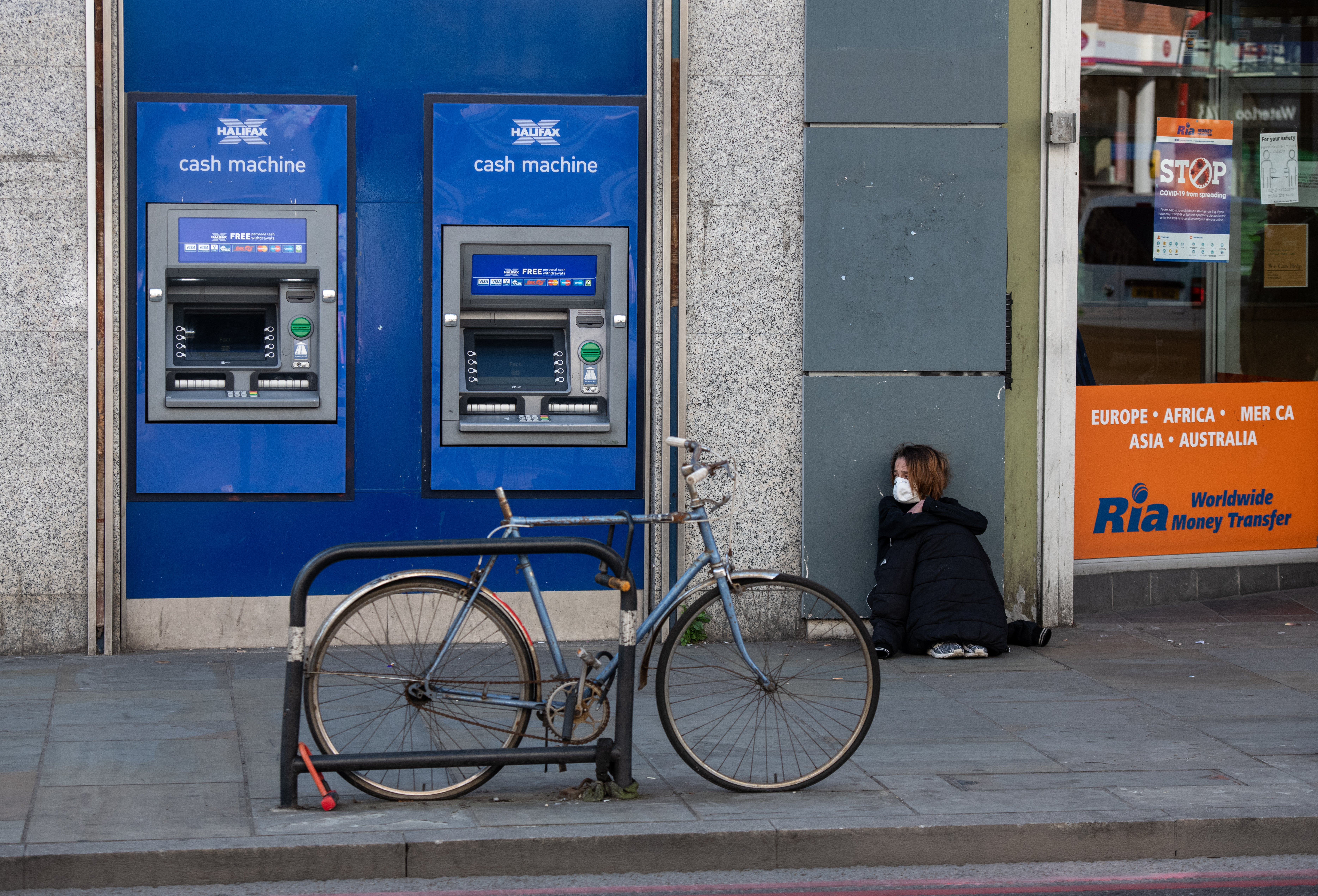Homeless women using T-shirts and old menstrual products for periods
Exclusive: ‘Even as paying customers, women were subject to stigma around assumed drug use, limiting their access to bathrooms,’ report author says

Your support helps us to tell the story
From reproductive rights to climate change to Big Tech, The Independent is on the ground when the story is developing. Whether it's investigating the financials of Elon Musk's pro-Trump PAC or producing our latest documentary, 'The A Word', which shines a light on the American women fighting for reproductive rights, we know how important it is to parse out the facts from the messaging.
At such a critical moment in US history, we need reporters on the ground. Your donation allows us to keep sending journalists to speak to both sides of the story.
The Independent is trusted by Americans across the entire political spectrum. And unlike many other quality news outlets, we choose not to lock Americans out of our reporting and analysis with paywalls. We believe quality journalism should be available to everyone, paid for by those who can afford it.
Your support makes all the difference.Homeless women in the UK are being forced to use sponges, old clothes and used menstrual products during their periods, according to first-of-its-kind research.
A study by the University of Southampton, which looked into the experiences of homeless women during their periods, also found women were routinely refused entry to both public and customer bathrooms.
Researchers found some women resorted to using cut-up T-shirts, sponges, old clothes, toilet paper, and already used disposable menstrual items during their periods, while others used cheap herbal remedies rather than pricier treatments to alleviate infections.
Women sleeping rough were forced to depend on charities and council services for period products, but provision is patchy and inadequate, the study found, meaning women can be forced to shoplift period products or go without food to afford them.
Dr Polly Hardy-Johnson, one of the report’s lead authors, said: “Even as paying customers, women were subject to stigma around assumed drug use, limiting their access to bathrooms. Being able to pass as ‘not homeless’ was more difficult when women were unable to maintain menstrual health.
“Limited access to facilities led to infections and increased the need for costly laundry services, due to leakages and blood-stained clothing. There is a need for private, safe and clean locations for managing menstruation, as well as access to laundry facilities.”
Female rough sleepers also warned of services rationing their free period products – resulting in them being forced to request items from staff, who were sometimes men, many times in a given day.
The study, published in Women and Health, looked at nine relevant pieces of research carried out in the UK, the US, Canada and Nepal – finding the issues prevalent in all countries.
Dr Stephanie Baker, another lead report author, said: “So-called ‘period poverty’ is a global concern. Our findings highlight the need to stop gatekeeping and limiting access to menstrual health products. This is both a public health issue and a human rights one.”
Researchers found homeless women often struggled to find a clean and private area to change period products – with public toilets said to be dirty. Women also voiced feelings of embarrassment and shame about their periods, saying they concealed the fact that they were menstruating.
Join our commenting forum
Join thought-provoking conversations, follow other Independent readers and see their replies
Comments